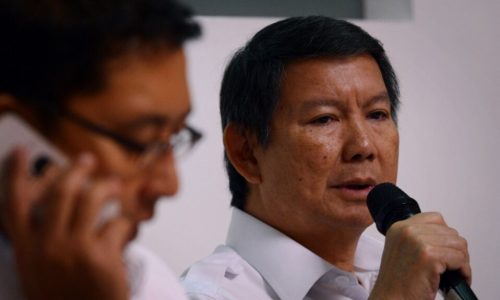An economist with the Institute for Development of Economics and Finance (INDEF) says energy resilience is one of the main priorities of the new Indonesian government in anticipation of global geopolitical dynamics and domestic challenges.
Abra Talattov, an analyst at INDEF, cited the importance of strengthening energy logistics as the backbone of national economic and social stability. He highlighted geopolitical risks, such as the Russia-Ukraine conflict and tensions in the Middle East, as serious threats to Indonesia’s energy stability.
“The spike in crude oil prices in 2022 to more than US$100 per barrel is a reminder that geopolitical risks have a significant impact on national energy,” Abra said in a statement obtained by Indonesia Business Post onTuesday, December 3, 2024.
According to him, Indonesia needs to strengthen its energy logistics infrastructure to anticipate disruptions in the global energy supply chain. As an archipelagic country with more than 17,000 islands, geographical challenges make energy logistics a crucial issue. A strong shipping system is therefore needed to ensure energy distribution to remote areas.
“Energy needs will continue to increase along with economic growth. To achieve the vision of an advanced Indonesia in 2045, economic growth of more than 6 percent per year must be supported by a stable and even energy supply,” Abra said.
He also emphasized the importance of energy diversification as a long-term strategy, while suggesting that contribution of natural gas, bioenergy, and renewable energy from local sources will help reduce the country’s dependency on one type of energy.
According to Abra, this will not only strengthen energy security, but also ensure supply stability to support community and industrial activities.
PIS’s support
Abra cited that PT Pertamina International Shipping (PIS) as a subsidiary of state owned energi company PT Pertamina plays a vital role in this context. With a fleet of 302 tankers and 402 supporting vessels, PIS distributes more than 160 billion liters of energy annually to all corners of the country.
“PIS is proof that Indonesia has adequate maritime capabilities to support energy security,” he said.
In addition, PIS also manages the Tanjung Sekong LPG Terminal which supplies 40 percent of the national LPG needs. In the future, Abra hopes that PIS’s role will be even greater in supporting the vision of national energy security.
“PIS’s ability to manage the energy supply chain is expected to be able to support the target of economic growth while supporting equitable development,” he said.
“The new government is expected to continue the energy logistics infrastructure development agenda to ensure that the vision of Advanced Indonesia 2045 can be achieved, with affordable and evenly distributed energy throughout the country,” he concluded.










